350,000 Somali children face starvation: UN
The United Nations has warned that 350,000 children are at risk of starvation in Somalia unless the world rallies to provide food aid to the impoverished African nation.
“As we speak now, 1.4 million children under 5 years of age are severely malnourished, and if we don’t step up our intervention, it is projected that 350,000 of them will perish by the summer of this year. The situation cannot be more dire than that,” Adam Abdelmoula of the United Nations Office for the Coordination of Humanitarian Affairs said.
“So I call on all those who are able to contribute, including the Somali diaspora, the business community, the traditional and nontraditional donors, everyone, to act and to act now,” he added.
Somalia's largest river, the Juba, has almost dried in three years of successive drought. More than 4.5 million people, most of them farmers, have been affected by the lack of water.
“Of all the droughts I have experienced in my 70 years, I have not seen anything as severe as this,” Ahmad Hassan Yarrow, a Somali resident forced from his home in search of food and water, told the UN.
The UN Intergovernmental Panel on Climate Change warned that the Horn of Africa suffers from a climate pattern change that has resulted in dryer weather in recent years.
In Somalia, a nation that has endured decades of political violence and extreme poverty, the effects of climate change are being acutely felt by children.
“Already in this country, 70% of school-age children are not attending school. In just one state in Juba land, the drought has led to closure of 40 schools, and that is going to be the trend in many drought-affected areas,” Abdelmoula said.
The Intergovernmental Panel on Climate Change (IPCC) warned that half the continent of Africa could be displaced as a result of climate change by 2030 as global temperatures continue to rise.
More than 700,000 people have already been displaced due to the successive years of drought, forced to walk barren roads littered with animal carcasses to try to make it to population centers in search of food, water and shelter.
More recently, Russia’s military operation in Ukraine has caused food prices to rise in African countries, where they depend on wheat and cooking oil supply.
The combination of food and water scarcity and high prices for imported wheat means that Somalia is looking at “a risk of famine,” according to Abdelmoula.
With its Somalia Humanitarian Response Plan, the UN is looking to raise nearly $1.5 billion to provide humanitarian assistance to 5.5 million of the most vulnerable people in Somalia. To date, however, it has taken in just $56.1 million, or 4% of that total.
The International Committee for the Red Cross warns that at least one-quarter of Africa's population faced food insecurity because of drought and higher prices.
US fighter aircraft shot down ‘in friendly fire’ amid aggression on Yemen
Yemeni FM: Israel’s sponsors accountable for ongoing aggression on Sana’a
Eight Palestinians killed as Israel attacks Gaza school, hospitals
VIDEO | Rome, Milan host new protests in solidarity with Palestinians
Dec. 21: ‘Axis of Resistance’ operations against Israeli occupation
Spain jurists demand ties with Israel ties be cut
VIDEO | Press TV's news headlines
VIDEO | Iran honors top Science Olympiad medalists


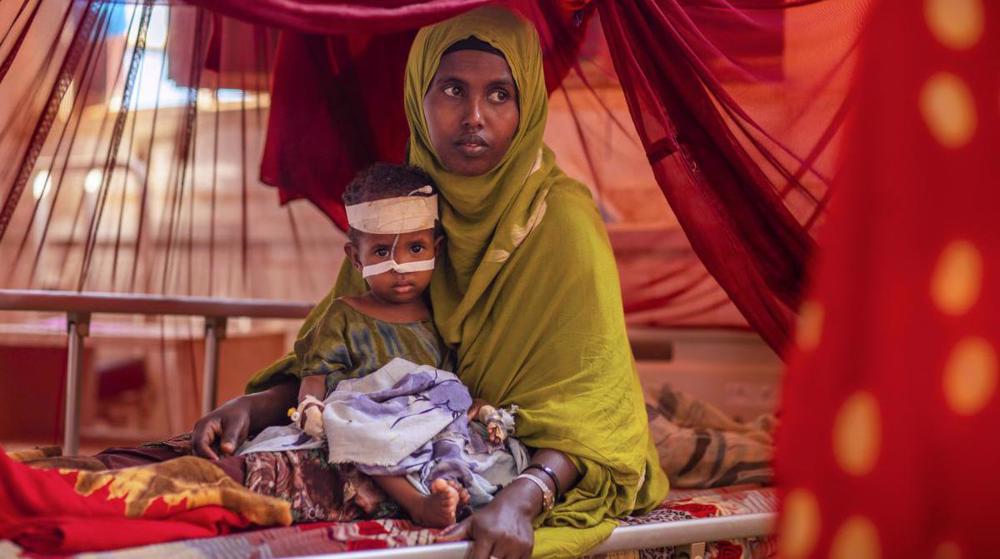
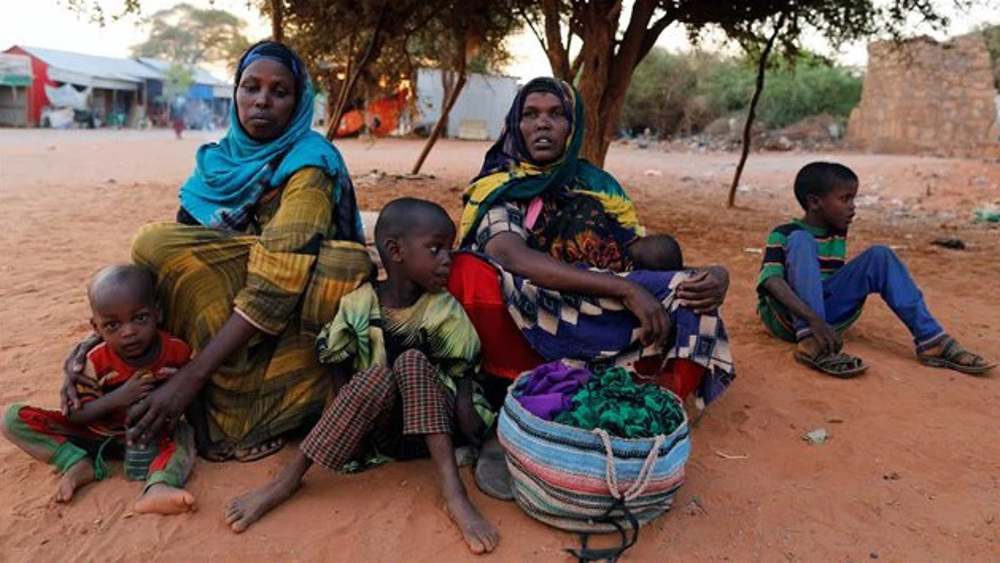






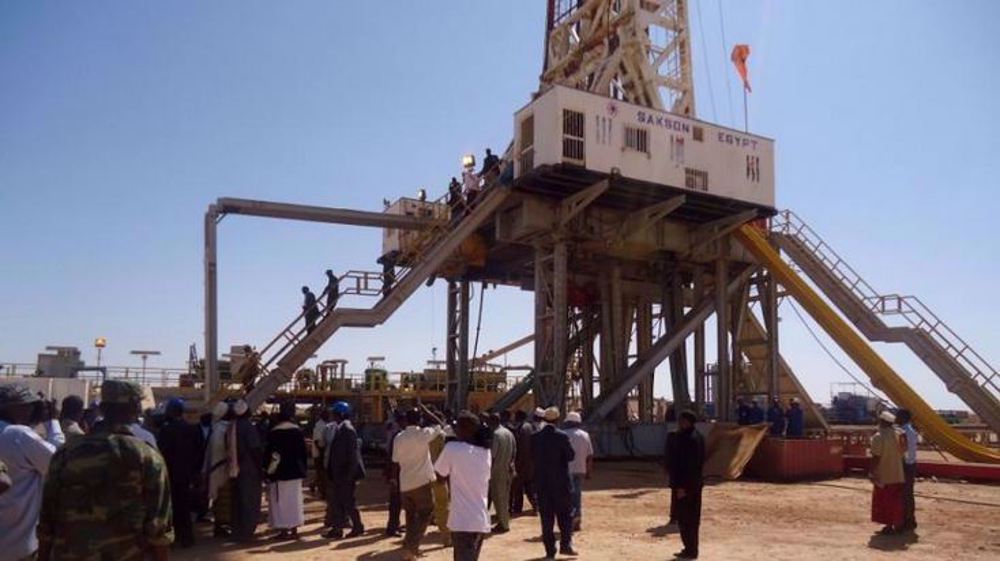
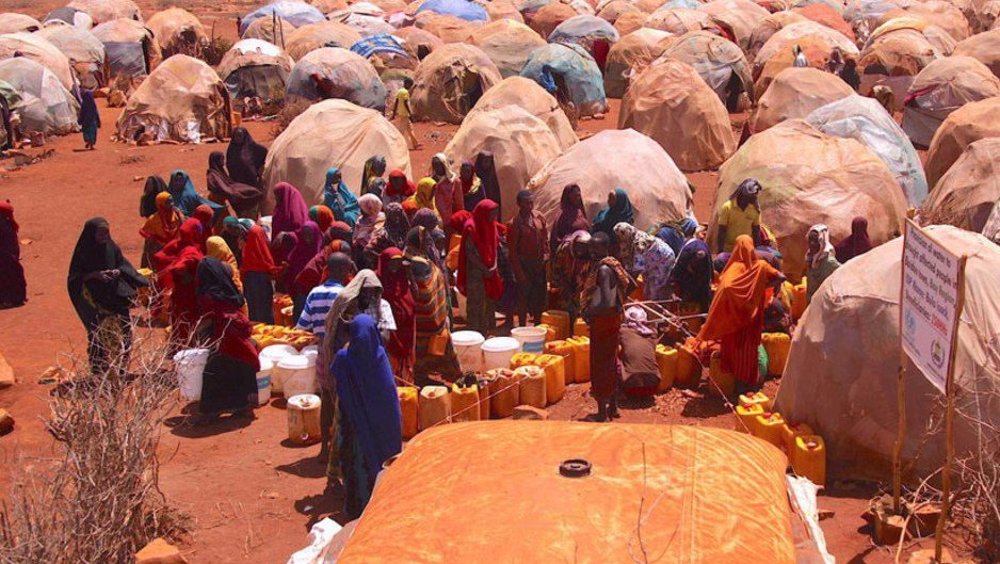
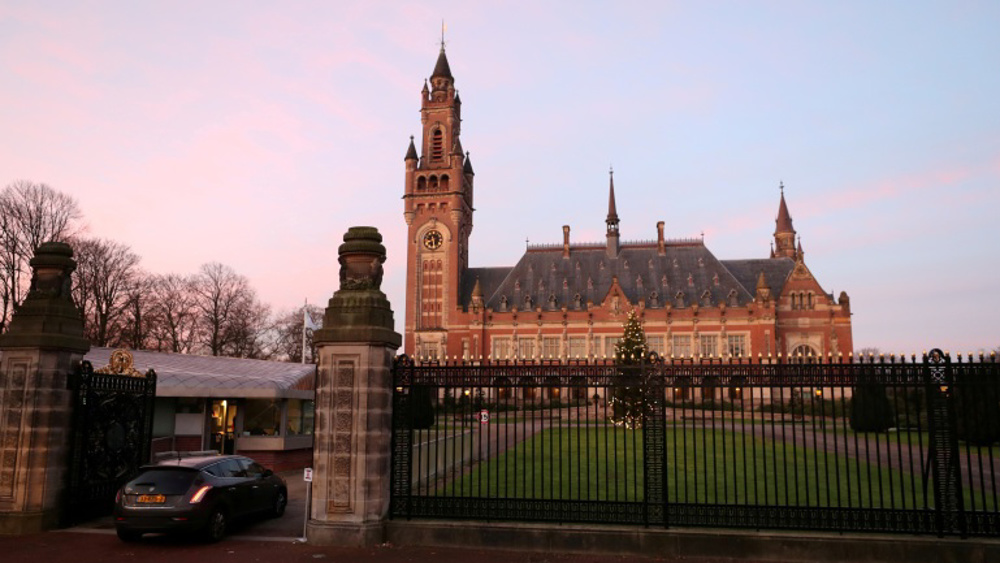

 This makes it easy to access the Press TV website
This makes it easy to access the Press TV website